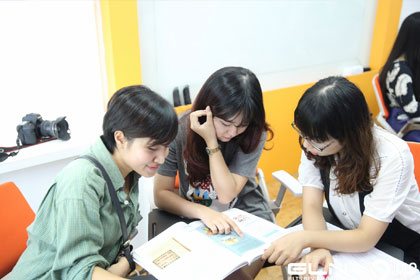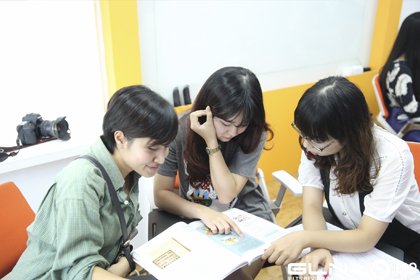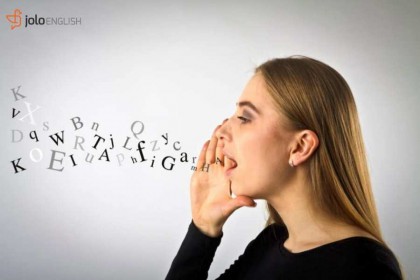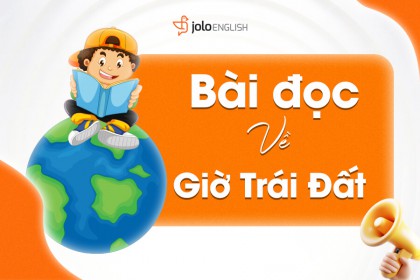Theo truyền thống của người dân Việt Nam, ngày 23 tháng Chạp (âm lịch) là ngày thực hiện nghi thức truyền thống cúng ông Công, ông Táo, không chỉ tiễn năm cũ mà còn thể hiện mong mỏi một năm mới sung túc, đủ đầy. Hãy để JOLO English chia sẻ thêm những câu chuyện về phong tục này thông qua bài đọc bằng tiếng Anh dưới đây nhé!

Kitchen Gods' farewell ritual: A cherished Vietnamese tradition
(Jenna Duong - Hanoitimes) Today, on the 23rd day of the 12th lunar month, Vietnamese families prepare a feast to see the Kitchen Gods off to heaven as part of the traditional Vietnamese Tet ceremony.
The Kitchen Gods Farewell Ritual, held on January 22 this year, heralds the beginning of Vietnam's Lunar New Year celebrations. There are many versions of how this ancient custom came to exist, but the most popular revolves around a poignant love story involving the Tao Quan or Kitchen Gods.
According to Vietnamese popular belief, the Land Genie rules the household and its land, while the Kitchen Gods - represented by a woman and her two husbands - oversee the kitchen and ensure the family's happiness and well-being. Legend has it that Trong Cao and Thi Nhi were a married couple who lived together for many years but were unable to have children, which led to frequent quarrels. After one particularly heated argument, Thi Nhi left home and, after wandering for some time, married Pham Lang. Realizing his mistake, Trong Cao spent months searching for his wife. He finally found Thi Nhi cooking in Pham Lang's kitchen. To avoid an awkward situation, Thi Nhi hid her ex-husband Trong Cao in a pile of straw. Unfortunately, in a cruel twist of fate, Pham Lang returned home, lit a fire to cook, and unwittingly burned Trong Cao to death. Devastated, Thi Nhi jumped into the fire to join her former husband. As for Pham Lang, overwhelmed with remorse and heartbroken by Thi Nhi's death, he also threw himself into the fire, ending his own life. Moved by the grief and love they shared, the Jade Emperor decided to immortalize them as gods and assigned them the task of overseeing the kitchens of every household. Thus, the trio became symbols of harmony, reunion, and love within families.
Every year, on the 23rd day of the 12th lunar month, the Kitchen Gods are said to ride carp into the sky to report to the Jade Emperor on the year's performance of the families they watch over. There are several explanations for the 23rd day. Why it was chosen by the ancient Vietnamese as the day the Kitchen Gods rode to heaven has several interesting reasons. According to the philosophy of the Five Elements, the 23rd is considered an auspicious odd day with positive attributes. In addition, the number 23 can be broken down as 2 + 3 = 5, and the number five is considered a sacred number that symbolizes fortune and plays a central role in the structure of the universe. The emphasis on virtue and the spirit of goodness within the family is what gives this tradition its fundamental significance, according to cultural researcher Nguyen Ngoc Tho. "The worship of the Kitchen Gods is not only a way to honor the past, but also a way to express hope for a prosperous and joyful New Year, while at the same time reaffirming the sincere and positive intentions of the family for the future," says Tho. "These are the main reasons why the tradition of worshipping the Kitchen Gods and sending them to heaven has been preserved in modern times," he added. After the departure of the Kitchen Gods to Heaven, Tet celebrations begin with a variety of traditional rituals that are meant to emphasize and preserve the cultural identity of the Vietnamese people.
As the Land and Kitchen Gods make their annual journey to Heaven, Vietnamese households diligently prepare a ritual offering on this day. The offerings serve as a gesture of gratitude, with families hoping that the deities will share their positive qualities with the Jade Emperor and seek blessings for a peaceful and prosperous year ahead. Every family in Vietnam has its own unique way of preparing these offerings. Common items are joss sticks, flowers, fruit, betel and areca nuts, glutinous rice, chicken, pork paste, spring rolls, and bamboo shoot soup. Essential to the ritual are votive paper shoes, robes, mandarin bonnets, and either paper or live carps that the Kitchen Gods ride to Heaven. In the northern regions, families often prepare three live carp or goldfish in a small bowl that is placed on the altar next to the offering tray. While the dragon was a symbol reserved for royalty, the commoners were only allowed to use the carp. The commoners thought it was fair because of the popular aspiration "Carp turns into Dragon," which represents the pursuit of knowledge, success, and spiritual elevation. The custom is a prayer for Vietnamese families to unite and support each other in overcoming the challenges of the coming year, while also expressing their hopes for success and happiness in the future.
Từ vựng hay về chủ đề tradition:
- Kithcen Gods (n): Ông Công, ông Táo
- land genie (n): thổ công
- ritual offerings (n): đồ thắp hương
- votive papers (n): vàng mã
- carp (n): cá chép
- Jade Emperor (n): Ngọc Hoàng
- harmony and reunion (n): sự hòa thuận và sum họp
JOLO English mong rằng bài đọc này sẽ giúp các bạn hiểu hơn về phong tục cúng ông Công, ông Táo hàng năm. Hãy liên hệ JOLO English để được tư vấn lộ trình học miễn phí, chinh phục giấc mơ IELTS nhé!






















